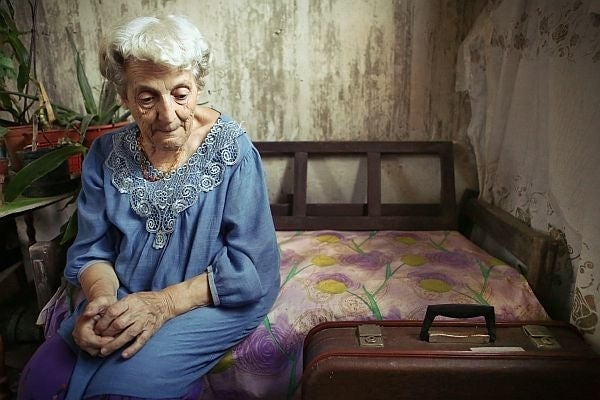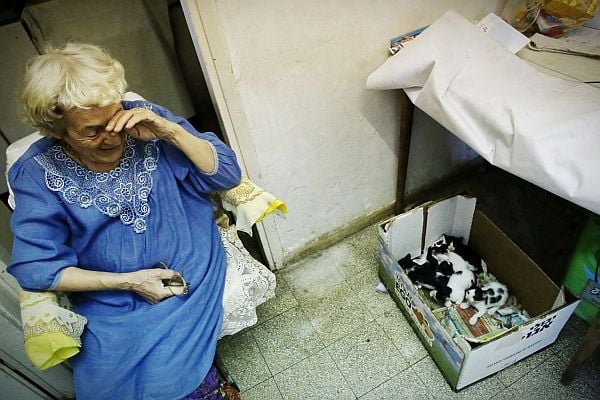70 years after the liberation of Auschwitz, Holocaust survivors in Israel are trapped in poverty
On January 27, 1945, exactly 70 years ago, Soviet troops liberated the most notorious Nazi death camp, Auschwitz-Birkenau. This hugely symbolic date has been designated as the International Holocaust Remembrance Day.


On January 27, 1945, exactly 70 years ago, Soviet troops liberated the most notorious Nazi death camp, Auschwitz-Birkenau. This hugely symbolic date has been designated as the International Holocaust Remembrance Day.
As big World War Two anniversaries roll around, fewer and fewer first-hand witnesses are around to tell their stories of its horrors. Israel is still home to many aging Holocaust survivors, but as many as one in four live in poverty.
The Foundation for the Benefit of Holocaust Victims in Israel estimates there were 193,000 Holocaust survivors living in the country in mid-2014. Each month, approximately 1,000 of them die. And of those still around, 50,000 live below the poverty line, NBC News reported.
Tamara More, the head of the Association for Immediate Help for Holocaust Survivors, tells Quartz that the people she works with need help with everything: food, transportation, home renovations, companionship during chemotherapy. They need air-conditioning installed in the hot Israeli summer, and their heating bills paid in the winter.
The organization, which has 3,000 volunteers and is strapped for cash, is helping a survivor who is blind and in a wheelchair as a result of a stroke. He and his wife live on $1000 a month, which comes from their social security and doesn’t allow for basic necessities. As a handicapped person, he doesn’t pay for public transportation, so he and his wife go to a local mall to gather napkins from the restaurants to use as toilet paper at home.
Beyond the minimal safety net of social security, many Holocaust survivors also receive additional funds from reparations that the German government hands out to victims of the Nazi regime. But the system is complicated, and some survivors are not eligible for the additional help. And even if they do get the funds, “these are not large sums” in a country that has a very high cost of living, says More.
The Israeli government, which has allocated $4.5 billion for survivor support, is not doing enough, she says. And it’s very hard for elderly survivors to ask for help. Raised in European traditions, they were taught to hide their real circumstances, never to admit they are in need. “When they approach us, they are in real dire straits,” More adds.

To convince them to accept the help, sometimes the organization has to rely on some benevolent deception.
The volunteers approach with offers to help feed pet cats or dogs. When the survivors become familiar with the volunteers, they are able to visit them at their homes. “We come for a social visit to the Holocaust survivor, and we so-called ‘forget’ the food under the table,” More says.
(You can contact the Association for Immediate Help for Holocaust Survivors here.)